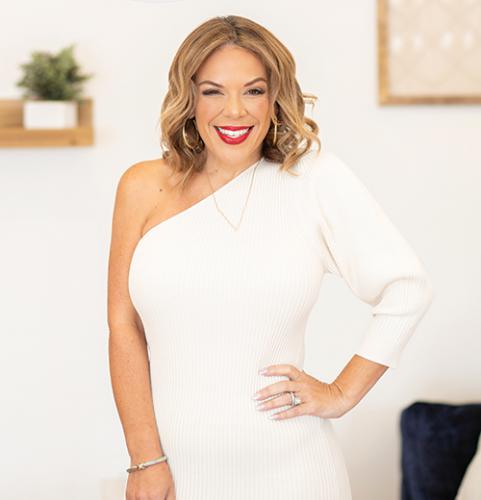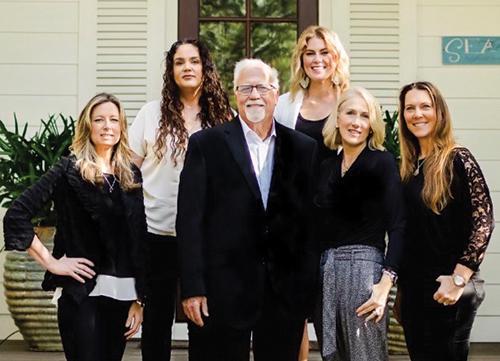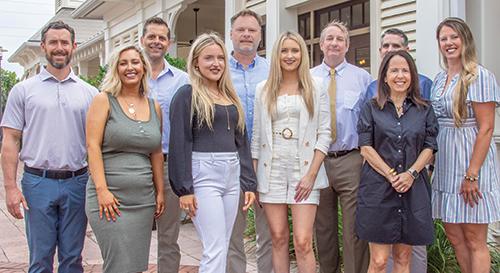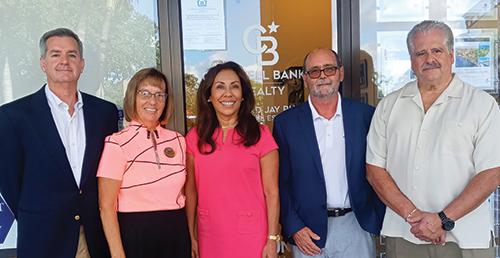
Top Tips for Building the BEST Real Estate Team
Want to expand your real estate team? Not sure if you want to start one? We talked to five team leaders to find out their advice and lessons learned.
In October 2021, 13 real estate agents walked away from the FIG Team with eXp Realty in Orlando led by Veronica Figueroa, shrinking the roster of agents to 27.
“We made a change to the team agreement to protect our database of more than 100,000 contacts, but we didn’t expect that reaction,” says Figueroa. “We clearly hadn’t rolled out the change well, but we learned from our mistake. Now we have an advisory board of agents that works with the team leadership to test ideas and talk through decisions.”
Figueroa, who rebuilt her team through strategic recruiting, now leads a group of about 55 agents with 12 support staff.
Teams, big and small, are an integral part of the real estate industry fabric today. According to a 2022 RealTrends Team Profitability study, teams of all sizes have average gross margins more than double the average of brokerage firms when compared to data from the 2021 RealTrends 500 study of top brokerage firms and RTC Consulting benchmarking data. That’s mainly due to the high levels of lead generation team leaders provide for their team members. So, it’s no wonder forming a team is so popular.
To build a team that lasts, leaders say you need the right mix of members and the flexibility to meet challenges. But, there is no one-size-fits-all solution. We spoke with five team leaders who are all approaching their team structure a bit differently and finding a high level of success.
Here are some lessons learned from top team leaders:
The FIG Team: Provide incentives and support
For Veronica Figueroa, longevity comes with encouraging agents to do the fundamental job of prospecting, working their sphere of influence and holding open houses, while also benefiting from the strategic relationships and extensive database of the team.

“We constantly push our agents—we call them partners—to be better and work harder, and we hold them to a high level of accountability with our coaches and mentors,” Figueroa says.
Here are Figueroa’s tips:
• Offer specific incentives. FIG Team members earn points for tracked activities, such as 20 conversations with potential clients. Points unlock access to specialty lead sources and extra business opportunities to generate more income.
• Supply back-end support. To free up time for agents to build relationships with buyers, sellers and their community, the FIG Team’s transaction coordinators, director of operations, photographers, videographers and marketing team take on day-to-day tasks.
• Provide coaching and mentoring. The FIG Team has a success coach and mentors to push agents to expand their business and to hold them accountable, along with a daily morning huddle and team inventory creation days to generate new business.
• Let agents build their brand. Figueroa says her goal is to take away the distractions of transactions and give agents time to build their brand that will benefit the whole team.
The Ketchersid Team: Look for diversity of experience
Jodi Ketchersid, leader of The Ketchersid Team with Corcoran Reverie in Destin, started her team in 2020 by giving each potential team member a personality test.

“I asked each person what motivated them to be in real estate,” she says. “Even though the reason was different for each person, it helps to understand each other.”
Ketchersid chose the five agents who are part of her team—all of whom work for both buyers and sellers—for diversity of experience, which she believes adds to the strength of the team. For example, they have been business owners, brokers and property managers.
Here are Ketchersid’s tips:
• Consider the size. Ketchersid prefers to keep her team small so they can continue to work at a high level without training new agents.
• Hold them accountable. “When your agents are part of your team, everyone has input, wants to be successful and to hold each other accountable,” Ketchersid, a former broker, says.
• Keep it “all for one and one for all.” Ketchersid says team members thoughtfully support each other, including when her child had a brain injury and she needed time off. “We all help each other, because we know life happens,” she says. The team’s shared phone number means every agent needs to know every listing.
• Balance personalities on the team. Even though they “butt heads” sometimes, Ketchersid says they work it out. “We have very little turnover on the team because we all cover for each other, and no one takes advantage of that,” she says.
At The Beach Team: Focus on training
In the 16 years since John Moran started At The Beach Team at Keller Williams Realty Emerald Coast in Navarre Beach, he has focused entirely on listings rather than buyers.

“When I started the team, I brought in new agents who were willing to work hard and trained them,” Moran says. “My first team member was a 20-year-old who worked in retail and happened to come along when I was recruiting her mother. The mom didn’t become an agent, but the daughter is an extremely successful member of my team.”
Here are Hufnagel’s tips:
• Keep the team size manageable. Moran’s team currently has nine agents and three administrative support members. “I’d rather have fewer people doing more deals than 300 agents doing one deal each,” Moran says.
• Recruit new agents. The key to success, Moran says, is to bring on young agents eager for training.
• Help recruits make their own money. “I don’t provide listings; I just provide them with knowledge, marketing materials and the support staff they need so they can get out and talk to sellers,” Moran says.
• Provide scripts. Moran’s method is to get agents to follow his scripts to get listings and make sales rather than relying on relationships or on his referrals for leads.
The Hufnagel Team: Hire seasoned agents
Mark Hufnagel, a former office manager and a team leader since 2020 with Coldwell Banker Realty in Stuart, takes the opposite approach from Moran. He believes the key to a team with longevity is to hire experienced agents.
“I used to do a lot of training, but now I want agents with at least two years of experience and a decent work ethic, so I don’t end up training people who leave,” Hufnagel says.

Here are Moran’s tips:
• Hire committed agents. Before adding anyone to the team, Hufnagel makes sure they are 100% willing to put in a full-time effort to make the team successful.
• Develop a well-rounded team. All agents serve buyers and sellers. Because they’re experienced, they tend to rely on Hufnagel mostly for problem solving.
• Expect to work hard. Some agents think starting a team means they’ll work less, but that’s not true, Hufnagel says. “You need to commit 100% to working with your agents and buyers and sellers,” he says.
• Consistently build team leads. While Hufnagel purchases and shares leads, the team grew quickly in the early days of the pandemic when they focused on the niche of Canadian sellers who couldn’t get to their Florida properties. “Many of those sellers are now buyers,” he says.
The Kirkpatrick Team: Bigger Isn’t Always Better
For Sabra Kirkpatrick, leader of The Kirkpatrick Team at Brown Harris Stevens in West Palm Beach, three is the perfect number.
“My team happened organically 12 years ago when I hired my now-business-partner, Lauren Greaves, to be my assistant,” Kirkpatrick says. “Within a year, I knew that I needed someone to be my equal in the business. Sarah Koenig joined us as an assistant and then became our third team member after 18 months.”
Here are Kirkpatrick’s tips:
• Pick people with whom you’re comfortable. Team members should be able to communicate and respond well to each other. “Even though this is a business relationship, we’re like sisters,” she says.
• Balance strengths and weaknesses. Start by knowing your own strengths and weaknesses, then recruit agents who are different, such as someone who is highly organized or great at finding properties for sale, Kirkpatrick says.
• Have shared goals. Kirkpatrick and her team have 40 listings at a time, which means they all work a lot. She says agents with lower sales goals wouldn’t fit in with her team.
• Create an equal partnership. Kirkpatrick credits their success to balancing the income among the three agents. “When one of us doesn’t have a stellar year, we refocus to help the other make more money,” she says.
Michele Lerner is a Washington, D.C.,-based freelance writer.

